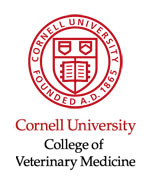"Transfrontier Conservation Area Initiatives in
Sub-Saharan Africa: Some Animal Health Challenges"
Roy Bengis
As Africa’s conservation areas come under increasing pressure
from expanding human resource needs, the transfrontier conservation
area (TFCA) initiatives are a welcome breath of “fresh
air”
from a biodiversity conservation point of view. In addition,
the integration of land across international borders, as well
as the consolidation of state and privately / communally owned
land in joint ventures, may have major positive economic potential
for the specific region. These initiatives are strongly supported
by conservationists, eco-tourism enterprises and the public at
large, because they are the first tangible moves that may reverse
the current encroachment experienced by existing and established
conservation and wilderness areas, as expanding local communities
battle to survive the onslaughts of nature’s climatic fluctuations
and plagues which threaten their food security. The TFCA vision
explores the possibility that the changing of land-use practices,
from subsistence farming on marginal land to community participation
in eco-tourism based enterprises, may have sustainable economic
and ecologic benefits for all.
In the Southern African Development Community (SADC) region,
there are currently seven TFCA’s, involving land from two
or more participating countries that have already been established
OR are in the process and have political support with international
agreements at various stages of development and planning. A further
fifteen potential TFCA’s have been identified by the Peace
Parks Foundation in the SADC sub-region.
It is definitely not the intention of this paper to portray these
environmental conservation initiatives in a negative light. The
message that needs to be conveyed however, is that all parties
involved should enter these initiatives with their eyes “wide
open,”
forewarned of the potential animal health implications and challenges
that may be expected when increasing the currently existing geographic
range of certain animal pathogens and disease vectors. It is
totally predictable that without international boundary barrier
fences and with biological bridges being formed by contiguous
wildlife populations, any contagious / infectious disease or
vector present in any one of the participating countries or areas
may eventually spread throughout the entire TFCA. Potentially
problematic infections should be identified early by surveillance
and monitoring, and pro-active joint containment and control
measures should be established when and where necessary.
These animal disease issues may also be compounded by the enlarging
wildlife / livestock interface which may negatively impact on
adjoining communities. This paper deals with some of the more
problematic animal infections and disease vectors that have been
identified in certain TFCA’s. |
|











